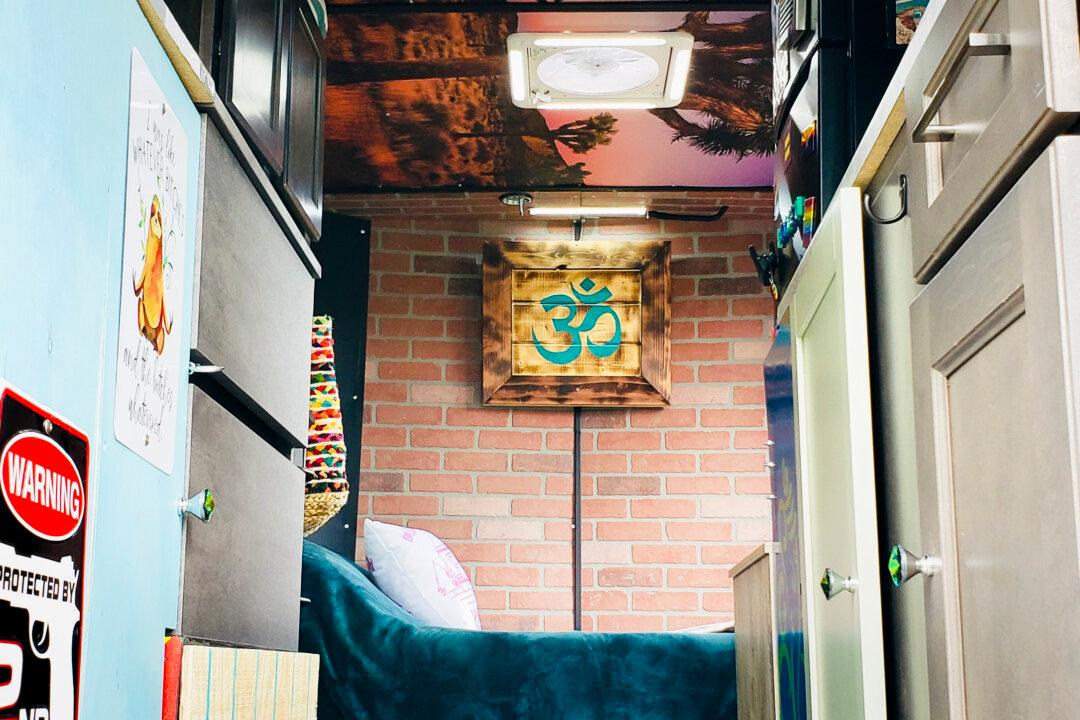Country music legend Willie Nelson’s song “On the Road Again” often evokes images of a carefree lifestyle—traveling to new destinations, meeting new people, and freedom from the mundane and often costly responsibilities of life. Today, there are more than 3 million Americans choosing this type of lifestyle, living in recreational vehicles, vans, campers, and even converted buses.
A recent report from Yahoo Finance indicates that the number of van dwellers has risen by 63 percent in the past couple of years, with the most popular live-in vans offering an average of just 126 square feet. California, Colorado, Florida, Oregon, and Washington hold the largest populations of “van lifers,” and about 80 percent of them opt for do-it-yourself conversions.





